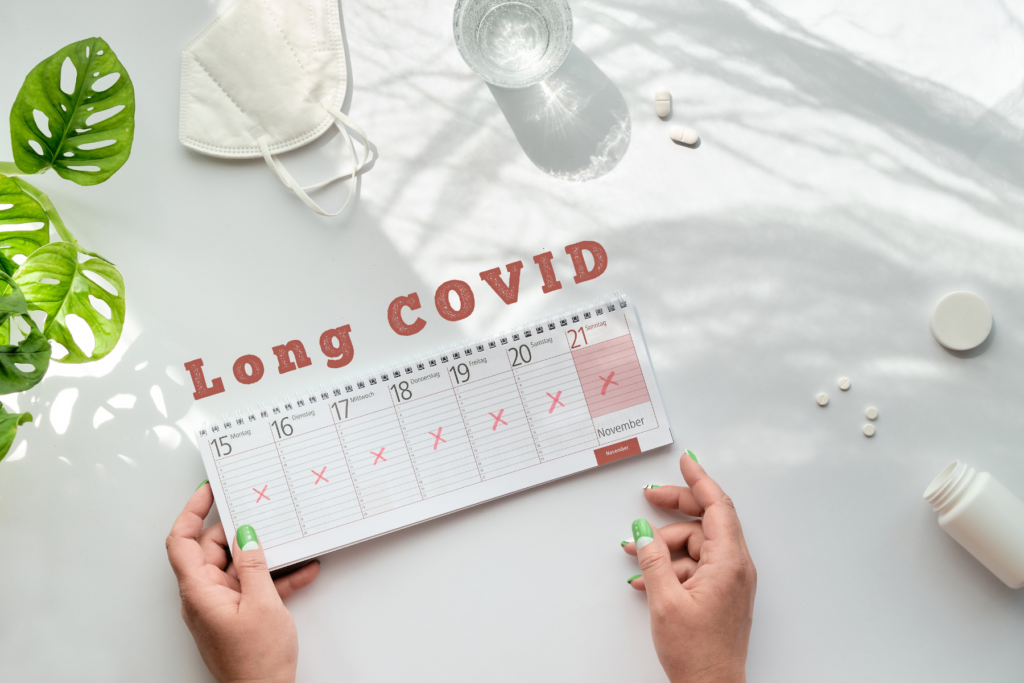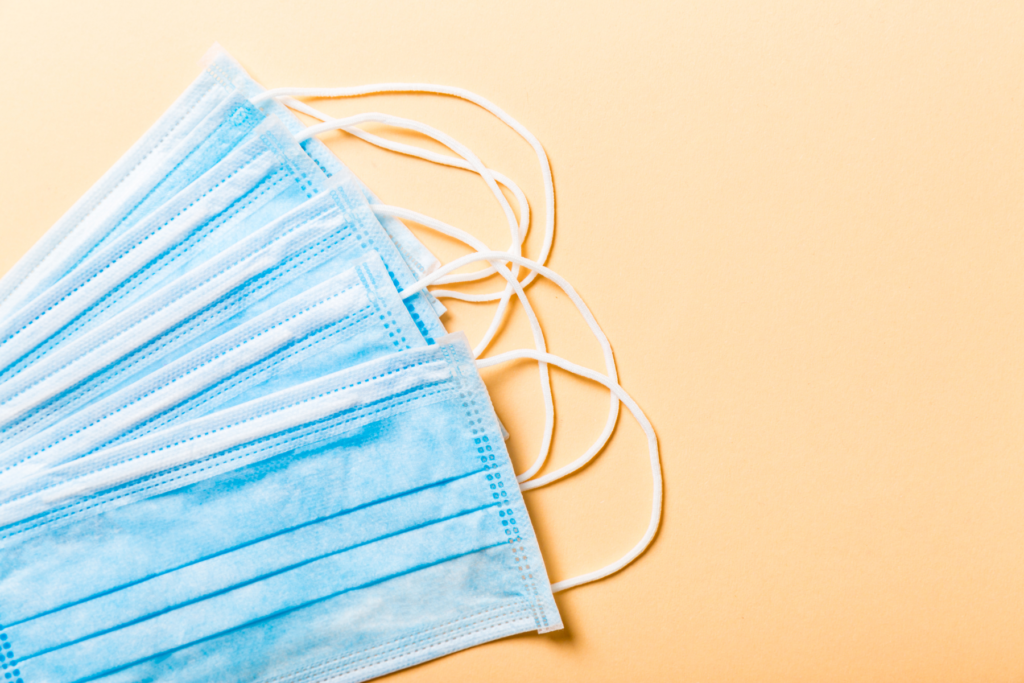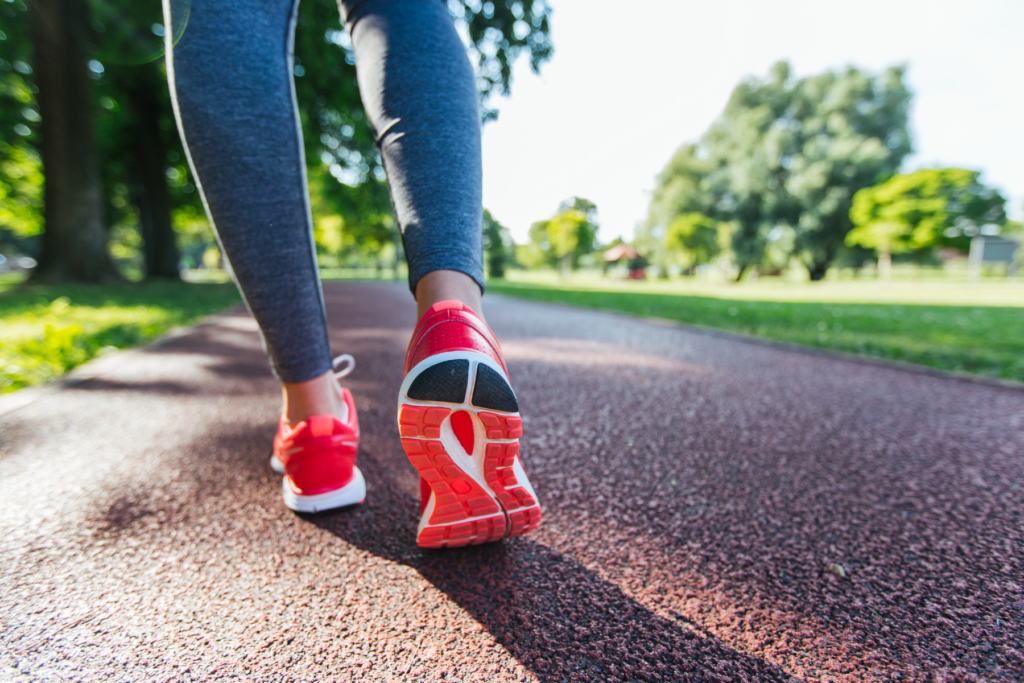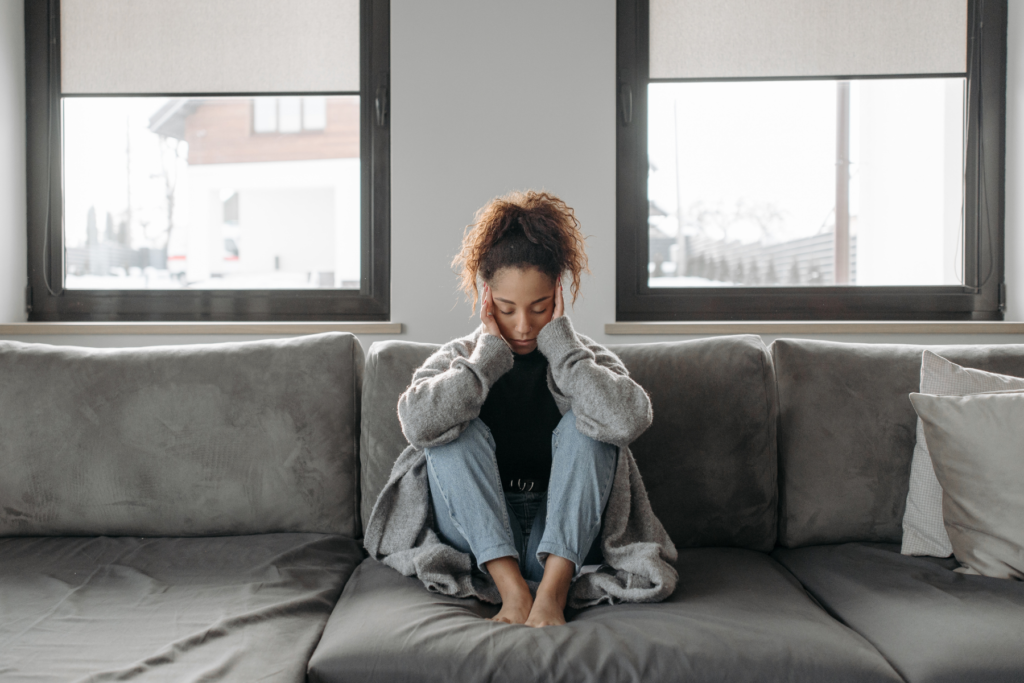My Long Covid Experience : A Series
March 15, 2022

If you’re reading this and have experienced long covid yourself, I want to start off this series of blog posts by simply saying, I’m sorry.
I’m sorry you have to deal with this. That you might be dismissed by doctors and receive eye rolls in social circles. I’m sorry you look completely fine yet feel absolutely awful. That you are one of the 100+ million people who are guinea pigs to this disease. It’s certainly not fair.
I’m sharing my long covid story on my blog for a few reasons.
Even though these debilitating symptoms are more and more understood each day, there is still a lack of understanding and acceptance. To make it worse, the more people who test positive for covid, the more people that will experience long covid.
It’s estimated that as many as 40% of those who test positive for covid go on to have symptoms beyond their initial illness. Many experience symptoms that last beyond 1 year post-infection. The good news? We have so much more information than we did 2 years ago. The even better news: vaccination may potentially decrease the chances of long covid.
Either way, we know more now than we ever did. If you’re experiencing symptoms of long covid, you’ll have direction, resources, and the hope of many many recovery stories.
Where it All Started
I want to start off this blog series by sharing a little more about my story for context…
I got sick in the early March 2020 wave, a few days before lockdown even started. As a result, no one even knew what long covid was when my mysterious symptoms started popping up. I also wasn’t able to get tested due to the timing and my symptoms feeling “manageable at home.” Plus, NO ONE wanted to go to the hospital in the NYC metropolitan area in March 2020 unless you REALLY needed to.
Unfortunately, I also wasn’t notified by my job that multiple of my coworkers tested positive for covid before lockdown. I wasn’t considered a “close contact” despite department meetings and shared office spaces. At this point, masks, social distancing, or any form of protective measures were not yet in place. As much as I understand why I wasn’t notified, this ultimately hindered my care.
It wasn’t until mid-April after weeks of still not feeling myself that a well-meaning colleague gave me a heads up that I should seriously consider that I had covid.
I knew this was a possibility, but let’s be serious…what are the chances that you’re part of the first couple of hundred cases in your state at the beginning of a global pandemic? Yes, I worked in a health center, but I didn’t work in a hospital.
My first day of symptoms was only 4 days after the first case was even confirmed in my state (and that was more than 200 miles away from where I worked). Everyone in my family except my husband and sister thought I was being paranoid, but I knew there was a chance. As a result, we didn’t even know that I definitely had covid until I was tested for antibodies in early June, 3 months after I was sick.
All of this, unfortunately, delayed individualized care, doctors taking my symptoms seriously, and ultimately, delayed my recovery.

My Experience with Covid
My experience with covid was somewhat uneventful in comparison to others’ experiences.
If you’ve had covid, you know that “mild” or “manageable at home” isn’t necessarily comfortable. In fact, it can still feel like one of the worst illnesses you’ve ever had.
My main symptoms were fatigue, a really bad headache, this weird heavy feeling in my chest, some breathlessness while talking, and a lot of chills and backaches. Beyond that, I didn’t really have the symptoms that you would see on the news like a cough, congestion, or persistent fever (I think I had a low grade for 1 day).
It was also interesting to feel how the infection waxed and waned throughout my illness. Some days I could barely move off of the couch, while others I would work a little or make a meal in the kitchen. Luckily my husband and daughter (7 months at the time) faired pretty well in comparison with only minor symptoms.
The Start of My Rocky Road to Not-So-Recovery
My recovery was anything but linear.
Initially, I thought I was in the clear. I started to feel better around days 11-13. I even felt good enough to do some yoga after I was a few days clear of 14 days.
But, not so fast. By the end of March, I was dealing with constant phlegm and an infection in my chest. Luckily, I was successfully treated with antibiotics and felt better within a few days.
I headed back to virtual work, ready to get back into my routine. Within a few days of work, caring for my daughter, and living normal life, I was down for the count again. I asked for a full week off from work to rest more, as instructed by my doctor at the time. One week later, I was feeling good again and went back to work.
I lasted 10 days this time before I was down for the count again. Headaches, nausea, feeling short of breath, dizziness, fatigue, and lacking the stamina I needed to see my usual client load. I was used to seeing 4-8 clients a day, traveling around campus, and maybe even holding an event. I could now barely manage seeing 3 clients without needing a nap or a break from speaking. What the heck was going on?
Again, I took care of myself as best as I could by requesting more time off. Our 8-month-old daughter was still home with us at this time. Like everyone, we were just trying to do the best we could. Her naps saved us as I tried to navigate getting back to work and feeling better. By mid to end of April, I took a bit longer to focus on my recovery. I went back to work but prioritized my health by taking advantage of my schedule and slowing down to prep for summer.
Just When I Thought it Was Over…
About 3 weeks later (mid-May), I decided I was ready to try exercise again. Since I was feeling fine I figured some light exercise might feel good.
I did a slow run around our local elementary school followed by a slow walk and repeated this sequence 2-3 more times. It couldn’t have been more than 20 minutes. This felt easy for me. I was used to running 3-4 miles on a complete whim prior to getting sick.
Unfortunately, it didn’t go smoothly. The next day I ended up in urgent care with chest pains, shortness of breath, an excruciating headache, and fatigue. I couldn’t even go for a 15-minute walk around the neighborhood.
The doctor at urgent care told me maybe it was engorgement. (I had recently stopped breastfeeding. How else do you protect your 7-month-old when you’re sick during a global pandemic?) No disrespect to the doctors who were working so hard during these times, but REALLY?!? My feeling that something was clearly wrong was undeniable (at least to me and my husband). However, I felt like i was dismissed by every care provider I had seen both virtually and in-person.

From Hopeless to Hope
At this point, I was beyond upset, angry, and very much feeling alone. Feelings of depression started to set in.
Unfortunately, depression and anxiety as a result of our symptoms aren’t uncommon in long haulers. Getting out of bed was getting harder. What used to feel like excitement to get out of bed, take care of my daughter, and work in a career I very much loved now felt like dread.
Who was I if I couldn’t do all of the things that I wanted to do? That were expected of me? That I built my life around?
What was wrong with me? How could I fix it if I wasn’t even being taken seriously?
Around this time, pieces of information started to come together. I found news articles of people talking about the same thing I was going through. I was literally googling “covid not getting better” daily. These articles linked me to a post-covid recovery group, Survivor Corp. I think this group literally saved my sanity.
The group linked me to a very early webinar from a Doctor at Mount Sinai about post-covid recovery and autonomic dysfunction, which can sometimes be set off by a viral illness. It was starting to all make sense. The Majority of my symptoms were textbook POTS symptoms and how much I was resting was actually making me WORSE.
Finally, i had some answers and a direction to move in.
Onto ACTUAL Covid Recovery
This small bit of information really propelled me into my recovery.
Prior to seeing a cardiologist that specialized in POTS, I researched and implemented exercise and hydration regimens. Within a few months, these small changes greatly reduced my dizziness, headaches, nausea, and fatigue. I was able to function enough day-to-day and do more basic tasks. This also helped me tease out what symptoms were attributed to POTS and what symptoms were still persisting for unknown reasons.
Before getting covid, I was a healthy 34-year-old with very minimal health concerns. I felt physically capable of almost anything that I put my mind to. Even with the POTS management, I still struggled with daily fatigue, breathlessness, hoarseness/voice loss, and brain fog. It was so puzzling.
Looking back two years later, here is a brief summary of what helped and got me back to feeling more like myself:
Main Symptoms: Dizziness, nausea, headaches, large blood pressure and heart rate swings, brain fog, fatigue, and post-exertional malaise.
Cause: Post-viral postural orthostatic tachycardia syndrome (POTS) – with high blood pressure.
What helped: Slow pacing with increasing daily tasks, daily movement/exercise (only sitting/laying down to start), and hydration/electrolytes. Medication management is common, but I was able to a strong place that worked for me without medication.
NYC/NJ Resources if You’re Struggling: Dr. Tullo in West Orange
Main Symptoms: Fatigue, frequent upper respiratory infections, and frequent voice loss.
Cause: Unknown.
What helped: I was one of the lucky ones where vaccination led to a huge improvement in these symptoms. Unfortunately, not everyone sees this type of improvement with vaccination.
NYC/NJ Resources if You’re Struggling: Center for Post-Covid Care at Mount Sinai
Main Symptoms: Breathlessness, frequent voice loss and hoarseness, breathing discomfort, and difficulty breathing with exercise.
Cause: Vocal Cord Dysfunction
What helped: 2 rounds of speech therapy with a SLP well-versed in VCD, close follow-up with an ENT well-versed in VCD, low acid diet, and reflux medication (even though it didn’t feel like I had reflux).
NYC/NJ Resources if You’re Struggling: Dr. Aviv w/ ENT & Allergy Associates in Midtown ( rule out all lung and heart concerns prior to scheduling).

Coming Next in the Long-Covid Blog Series:
If you, or someone you know is experiencing long covid, know that you aren’t alone. Other topics I will discuss in this blog series include:
-How I got back to exercise
-What helped me recover
-Long-covid nutrition tips
and more.